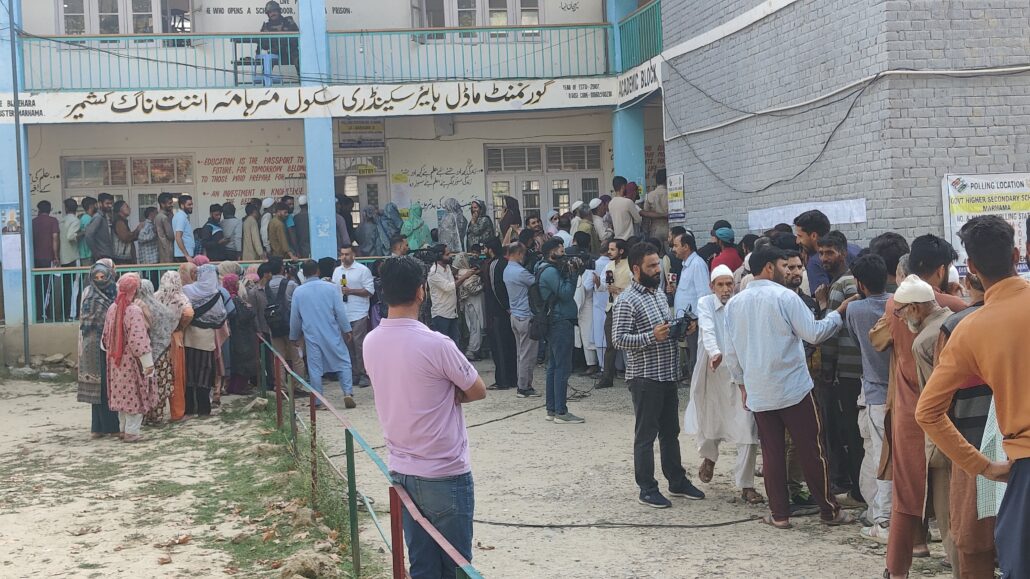
Rayees Shah/ Shah Basit
As voters in Ganderbal headed to the polls in the second phase of Jammu Kashmir’s Assembly Elections, frustration is simmering over the central government’s drastic reduction in rice allotments.
Since January 2023, residents have faced severe cuts in their rice rations, now limited to just 5 kilograms per person per month—a move that has left many families struggling to meet their basic needs.
In Kashmir, where rice is central to the local diet, the situation has caused widespread anger. “Even the birds in Kashmir are eating more rice than what we’re getting right now,” said Bashir Ahmad, a resident who stood in line to vote. “What else can we talk about when the government has made us suffer for something as essential as food grains?”
The central government’s decision, which reduced rice quotas from an earlier 15 kilograms per person, has been a major issue during the election season.
Political parties in the region have made rice allotment a cornerstone of their campaign promises, vowing to restore previous levels of distribution through the Public Distribution System (PDS) if elected.
Families in Ganderbal, many of whom rely heavily on government-subsidized rice, have felt the weight of this policy change. For decades, rice has been the primary staple in the valley, and for many, the reduction in supplies has been devastating.
As costs in the private market continue to rise, purchasing rice has become an economic burden.
“We’re being forced to buy rice at 40 rupees per kilogram from local shops because the government isn’t giving us enough,” said Farooq Malik, another voter from Ganderbal. “We shouldn’t have to worry about whether we’ll have enough to feed our children.”
The crisis in food supply has prompted many in Ganderbal to use their vote as a form of protest against the central government’s policies. People from all walks of life—farmers, laborers, and shopkeepers—have turned up at polling stations in large numbers, determined to elect representatives who will take their concerns to the legislative assembly.
Ruksana, a 55-year-old homemaker, expressed her disappointment as she cast her vote: “They’ve made something as simple as rice into a privilege. We are not asking for gold. We just want the food that was always ours.”
The election turnout in Ganderbal has been strong, with locals eager to push back against what they see as an attack on their livelihoods. As rice shortages continue to dominate the political discourse, the hope for change is palpable.
Many here believe that their vote will bring about the leadership necessary to address the crisis and restore the valley’s staple food supply.




